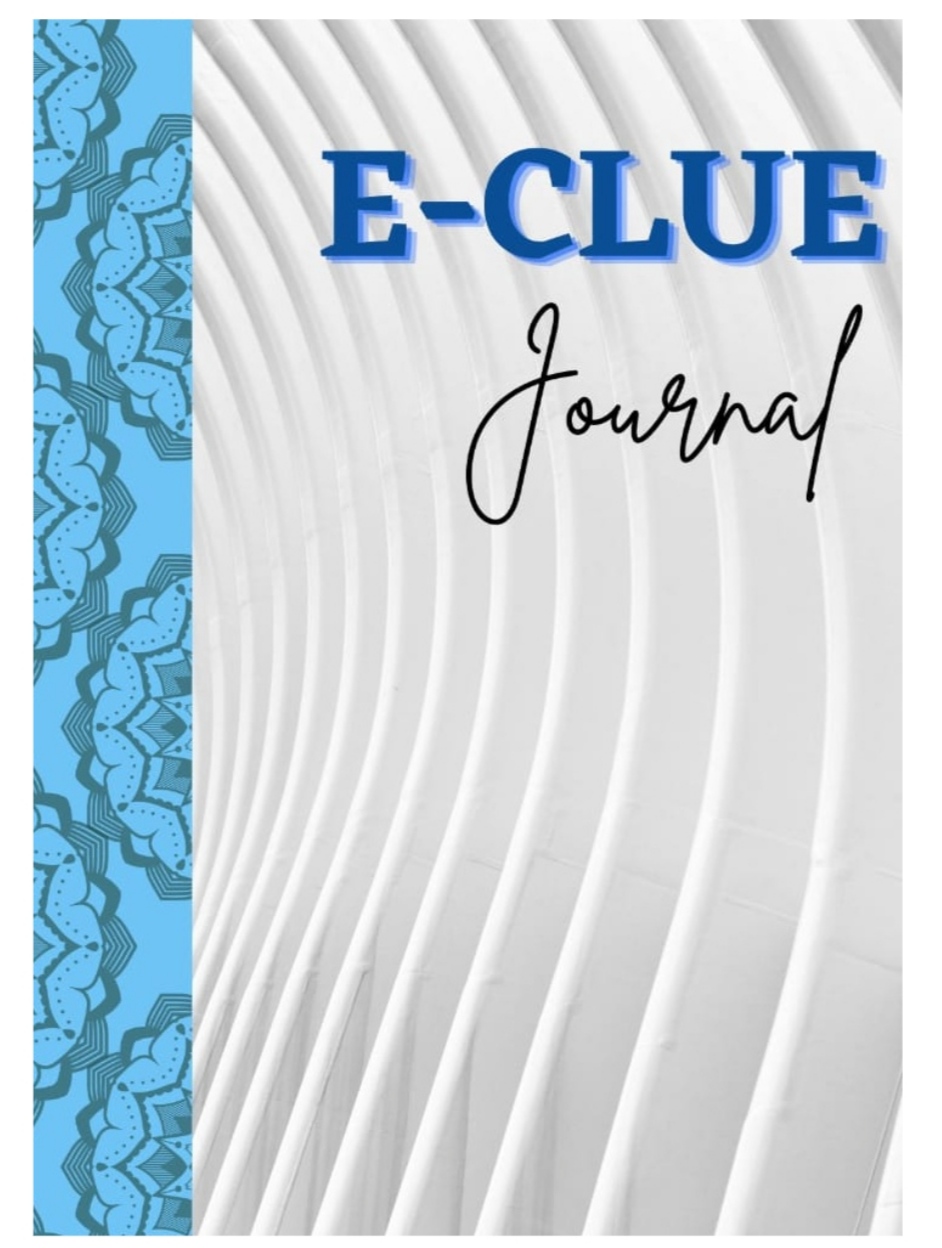The Effect of Pre Service EFL Teachers Deeper Learning Awareness on the 21st Century Skills Promotion
DOI:
https://doi.org/10.53682/eclue.v13i2.12731Keywords:
Deeper learning, Awareness, 21st-century skills, Pre-service EFL teachersAbstract
The current study aims to investigates the effect of pre service EFL teachers awareness of promoting deeper learning on students 21st century skills encouragement This quantitative research uses a cross sectional survey design The participants were 366 pre service EFL teachers from five universities in the Special Region of Yogyakarta Indonesia The data were collected by distributing two questionnaires: the Deeper Learning Awareness adapted from Jiang 2022 and Rodriguez and Fitzpatrick 2014 and the 21st Century Skills questionnaires adapted from Kelley et al 2019 The pilot testing expert judgement and SPPS analysis were used to assess the questionnaires validity reliability and practicality The data were analyzed using Regression Analysis The result reported that pre service EFL teachers in the Special Region of Yogyakarta are aware of promoting deeper learning to support students 21st century skills Their deeper learning awareness also significantly predicted the promotion of 21st century skills The more pre service EFL teachers are aware of promoting deeper learning the more the 21st century skills are implemented in the EFL learning < p>
References
Asri N A 2019 Designing a 21st century assessment in EFL learning context KnE Social Sciences 3 10 335 https: doi org 10 18502 kss v3i10 3915
Banerjee M Zlatkin Troitschanskaia O 2021 The gap between knowledge and belief: narrative affect and students deeper learning in higher education Studies in Higher Education 46 10 2087 2098 https: doi org 10 1080 03075079 2021 1953330
Cohen L Manion L Morrison K 2018 Research Methods In Education 8th ed Routledge https: doi org 10 4324 9781315456539
Daniel J Quartz K H Oakes J 2019 Teaching in community schools: Creating conditions for deeper learning Review of Research in Education 43 1 453 480 https: doi org 10 3102 0091732X18821126
Darling Hammond L Oakes J 2019 Preparing teachers for deeper learning Harvard Education Press https: hep gse harvard edu 9781682532928 preparing teachers for deeper learning
Hern ndez L E Darling hammond L Adams J Bradley K 2019 Deeper learning networks : Taking student centered learning and equity to scale Palo Alto CA: Learning Policy Institute https: learningpolicyinstitute org product deeper learning networks
Hismanoglu M 2013 Does the English language teacher education curriculum promote CEFR awareness of prospective EFL teachers? Procedia Social and Behavioral Sciences 93 938 945 https: api core ac uk oai doi:10 1016 j sbspro 2013 09 307
Huberman M Bitter C Anthony J O Day J 2014 The shape of deeper learning: Strategies structures and cultures in deeper learning network high school Report 1 of American Institutes for Research 1 38 https: files eric ed gov fulltext ED553360 pdf
Jiang R 2022 Understanding investigating and promoting deep learning in language education: A survey on Chinese college students deep learning in the online EFL teaching context Frontiers in Psychology 13 https: doi org 10 3389 fpsyg 2022 955565
Kelley R T Geoff Knowles J Han J Sung E 2019 Creating a 21st century skills survey instrument for high school students American Journal of Educational Research 7 8 583 590 https: doi org 10 12691 education 7 8 7
Mustika N Nurkamto J Azizah A N 2019 Exploring the Indonesian English teachers perceptions towards higher order thinking skills HOTS in the 21st century learning October 46 51 https: doi org 10 17501 26307413 2019 2105
Pardede P 2020 Integrating the 4Cs into EFL integrated skills learning JET Journal of English Teaching 6 1 71 85 https: doi org 10 33541 jet v6i1 190
Rahmani E F Riyanti D 2022 English student teacher awareness of differentiated instruction DI implementation in classroom IJEE Indonesian Journal of English Education 9 2 211 226 https: doi org 10 15408 ijee v9i2 28505
Rickles J Zeiser K L Yang R O Day J Garet M S 2019 Promoting deeper learning in high school : Evidence of opportunities and outcomes Educational Evaluation and Policy Analysis 41 2 214 234 https: doi org 10 3102 0162373719837949
Riordan M Klein E J Gaynor C 2019 Teaching for equity and deeper learning: How does professional learning transfer to teachers practice and influence students experiences? Equity Excellence in Education 52 2 3 327 345 https: doi org 10 1080 10665684 2019 1647808
Rodriguez V Fitzpatrick M 2014 The teaching brain: An evolutionary trait at the heart of education New Press https: eduq info xmlui handle 11515 19670
Shen D Chang C S 2023 Implementation of the flipped classroom approach for promoting college students deeper learning Educational Technology Research and Development 71 3 1323 1347 https: doi org 10 1007 s11423 023 10186 4
Tang H Mao L Wang F Zhang H 2022 A validation study for a short version scale to assess 21 st century skills in flipped EFL classrooms Oxford Review of Education 48 2 148 165 https: doi org 10 1080 03054985 2021 1935226
Tyas M A Nurkamto J Marmanto S Laksani H 2019 Developing higher order thinking skills HOTS nased questions: Indonesian EFL teachers challenges Proceeding of the 2nd International Conference on Future of Education 1 52 63 https: doi org 10 17501 26307413 2019 2106
Wongdaeng M Hajihama S 2018 Perceptions of Project Based Learning on Promoting 21 st Century Skills and Learning Motivation in a Thai EFL setting JSEL 13 2 158 190 https: so04 tci thaijo org index php jsel article view 113931
Zhou S Fung D Thomas N 2025 Towards deeper learning in EMI lectures: the role of English proficiency and motivation in students deep processing of content knowledge Journal of Multilingual and Multicultural Development 46 7 1749 1764 https: doi org 10 1080 01434632 2023 2248078






